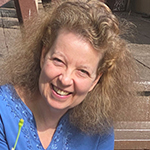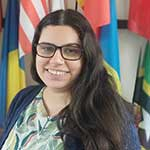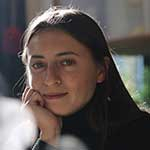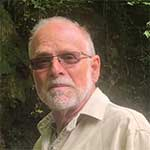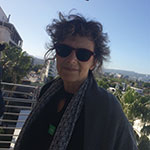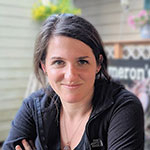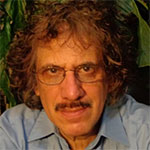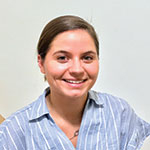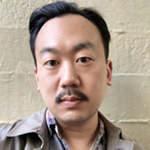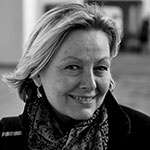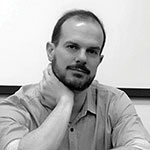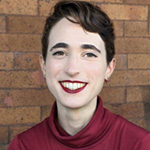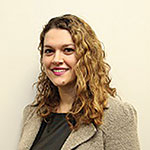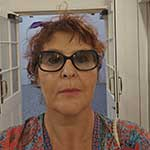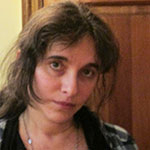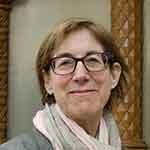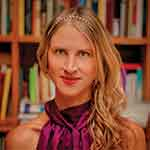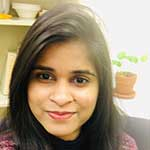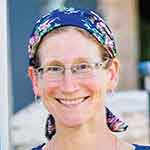Browse through all of the translators in WLT.
-
Mohammed Kadalah has most recently published translations and short prose in Lyrikline and in the anthology Voices of the Arab Spring. Born and raised in Syria, he currently teaches Arabic at the University of Connecticut.
-
Toshiya Kamei holds an MFA in literary translation from the University of Arkansas. His translations have appeared in venues such as Clarkesworld, The Magazine of Fantasy & Science Fiction, and Strange Horizons.
-
Russell Karrick is a poet/translator living between New York and Colombia. He was the winner of the Summer/Fall 2020 Gabo Prize for Literature in Translation & Multilingual Texts from Lunch Ticket. His poetry has appeared in Magma Poetry, Blue Earth Review, Jet Fuel Review, and 300 Days of Sun, among others. He is currently finishing his MFA in creative writing at Fairleigh Dickinson University.
-
Katie Kassam is a recent translation graduate from South London who currently lives in Scotland. She holds a masters in translation studies, specializing in translation between Russian and English, and a bachelor of arts in modern foreign languages and history, both from Durham University. Most recently she completed a six-month internship in editing and terminology at the International Atomic Energy Agency in Vienna. She enjoys theater, painting, and exploring science fiction and fantasy across cultures.
-
Aziza Kasumov grew up in Ludwigshafen am Rhein, Germany, but has spent the past eight years of her life in the US, first in Los Angeles, then in New York. She studied international relations and journalism at the University of Southern California and worked as a reporter for news organizations on both sides of the Atlantic, including the Financial Times and Frankfurter Allgemeine Zeitung. She is currently pursuing an MFA in fiction writing at Columbia University. Her faculty sponsor for this submission was Susan Bernofsky from Columbia University.
-
J. Kates is a minor poet and literary translator. His translations of Aigerim Tazhi’s poems, Paper-Thin Skin, were published by Zephyr Press in 2019.
-
Jordan Katz specializes in early modern Jewish history. She completed her PhD at Columbia University and is currently the Jacob and Hilda Blaustein Postdoctoral Associate at Yale. Next year she will begin a position as assistant professor in the Department of Judaic and Near Eastern Studies at the University of Massachusetts Amherst.
-
Jesse Lee Kercheval’s poetry collections include Dog Angel (University of Pittsburgh Press) and World as Dictionary (Carnegie Mellon University Press). In May 2015 Editorial Yaugarú in Uruguay published her bilingual poetry collection Extranjera / Stranger. Her translations of the Uruguayan poet Circe Maia have appeared in such magazines as The New Yorker, Boston Review, and American Poetry Review. The University of Pittsburgh Press will publish Invisible Bridge / El puente invisible: Selected Poems of Circe Maia in August 2015. Kercheval is also the editor of América invertida: An Anthology of Younger Uruguayan Poets, which is forthcoming from the University of New Mexico Press. She is the Zona Gale Professor of English at the University of Wisconsin–Madison where she also directs the Program in Creative Writing
-
Sara Khalili is a financial journalist, editor, and translator of contemporary Iranian literature. She won a 2007 PEN Translation Fund Grant for her translation from the Farsi of Seasons of Purgatory, a selection of short stories by Iranian writer Shahriar Mandanipour.
-
Joon-Li Kim was born in South Korea and grew up in the American Midwest. She holds a BA in psychology from Yale University and an MA in English and creative writing from New York University. She is a freelance writer and an editor of academic research papers, novels, and memoirs. Joon-Li was a judge for the 2024 National Translation Award in Prose for the American Literary Translators Association (ALTA) and moderated a panel on “Beyond Language Pairs: Multilingualism in Translation” at the 2024 ALTA conference.
-
Soo Y. Kim is Assistant Professor of English at Kookmin University, Seoul, South Korea. Kim's research and teaching areas are post–1945 British fiction, world literature, and theory.
-
Katie King (doolittleproject.wordpress.com) is an award-winning journalist and literary translator currently working on a PhD in Hispanic studies at the University of Washington in Seattle.
-
Neal Koga translates short stories and poetry from German, Persian, and Turkish, and works freelance as a manuscript editor. His translation of Galsan Tschinag’s “The Swan Song of a Departing People” appears in the March 2015 print edition of WLT. He also composes and publishes songs under the name Jamal.
-
Hilah Kohen is a University of Pennsylvania doctoral student currently in residence at Boğaziçi University in Istanbul. Her collaborations in Juhuri (Kavkazi Jewish) language advocacy include curatorial work for the Jewish Language Project and an article foregrounding Indigenous languages of the Russian Federation for Russian Language Journal. With Josephine von Zitzewitz, Kohen co-edited the “Russophonia” issue of Words Without Borders.
-
Jozefina Komporaly is editor and co-translator of the collections How to Explain the History of Communism to Mental Patients and Other Plays, András Visky’s Barrack Dramaturgy, and Plays from Romania: Dramaturgies of Subversion, and the author of numerous publications on translation, adaptation, and theater. Her translations have appeared in Asymptote, Columbia Journal, Los Angeles Review, Modern Poetry in Translation, World Literature Today, and others. Recently published volumes include Mr K Released, by Matéi Visniec (finalist for the 2021 EBRD Literature Prize), and Story of a Stammer, by Gábor Vida. Her forthcoming translation of Home, by Andrea Tompa, which was excerpted in the Summer 2021 issue of WLT, was the recipient of a PEN Translates Grant.
-
Nina Kossman is a Moscow-born artist, bilingual poet, translator of Russian poetry, sculptor, and playwright. Among her published works are three books of poems in Russian and in English, two collections of short stories, an anthology she edited for Oxford University Press, two volumes of translations of Marina Tsvetaeva’s poems, a novel, and several plays. Her Russian poems and short stories have been published in major Russian literary magazines in and outside of Russia. A recipient of many awards, she lives in New York. She edits East-West Literary Forum, a bilingual journal (in English and Russian).
-
Christina E. Kramer is professor emerita at the University of Toronto. She is the author of numerous books on Macedonian language and the Balkans and a translator of Macedonian literature: Freud’s Sister, by Goce Smilevski; My Father’s Books, The Time of the Goats, and The Path of the Eels, by Luan Starova; and A Spare Life, by Lidija Dimkovksa.
-
Denise Kripper is a literary translator from Buenos Aires. She holds a PhD in literature and cultural studies from Georgetown University and is now an assistant professor of Latin American literature and translation at Lake Forest College.
-
Alison Krögel is an associate professor of Quechua and Andean Studies at the University of Denver and the editor of the digital Quechua poetry collective, Musuq Illa. Her latest book of literary criticism—Musuq Illa: Poética del harawi en runasimi (2000–2020)—was published in 2021 and focuses on contemporary Quechua poetry from Ecuador, Perú, and Bolivia.
-
Chamini Kulathunga is a Sri Lankan translator. She is a graduate of the Iowa Translation Workshop. She was a visiting fellow at Cornell University’s South Asia Program in the summer of 2019 and was the former blog editor and a staff editor in Exchanges: Journal of Literary Translation. Her work has appeared and is forthcoming in the Los Angeles Review of Books, Los Angeles Review, Exchanges, DoubleSpeak, Bengaluru Review, and elsewhere.
